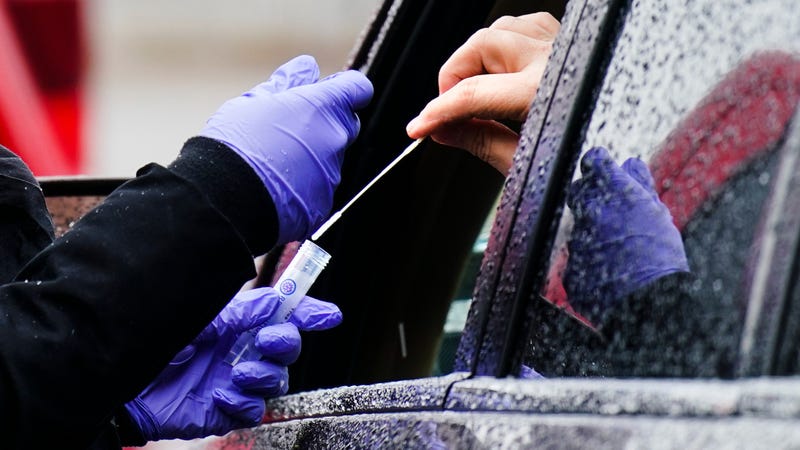
PHILADELPHIA (KYW Newsradio) — A federal vaccine rule is now in effect. Health care workers in about half the states, including workers in most hospitals in Pennsylvania, New Jersey and Delaware, must have their first dose of a COVID-19 vaccine as of Thursday.
The Biden administration mandate will be rolled out across the rest of the country in the coming weeks. It impacts workers at any hospital, nursing home or other healthcare facility that participates in the Medicare or Medicaid programs, including doctors, nurses, technicians, aides and even volunteers.

While the requirement is welcomed by some, others fear it will worsen already serious staff shortages if employees quit rather than comply.
And in some Republican-led states that have taken a stand against vaccine mandates, hospitals and nursing homes could find themselves caught between conflicting state and federal demands.
It comes as many places are stretched thin by the omicron surge, which is putting record numbers of people in the hospital with COVID-19 while sickening many health workers.
Meanwhile, Pennsylvania Gov. Wolf has signed legislation aimed at helping burned-out health care workers in the state. The bill authorizes $225 million, mostly for hospitals to offer bonuses to attract and keep employees. There is also a program designed to give some nurses up to $7,500 in student loan-debt relief, but it is still not enough to cover all the applicants.
Nationwide, about 81% of nursing home staff members already were fully vaccinated as of earlier this month, ranging from a high of 98% in Rhode Island to a low of 67% in Missouri, according to the federal Centers for Medicare & Medicaid Services. The data is unclear about the vaccination levels in hospitals and other health care sites.
The mandate ultimately will cover 10.4 million health care workers at 76,000 facilities.
It is taking effect first in jurisdictions that didn’t challenge the requirement in court. Those include some of the biggest states, with some of the largest populations of senior citizens, among them: California, Florida, New York and Pennsylvania.
“There absolutely have been employee resignations because of vaccination requirements,” said Catherine Barbieri, a Philadelphia attorney at Fox Rothschild who represents health care providers. But “I think it’s relatively small.”
Some states already have their own vaccine requirements for health care workers. For example, N.J. Gov. Phil Murphy signed an executive order last week requiring all health care workers in the state to be up to date on their COVID-19 vaccination by the federal deadline or risk losing their jobs.
The federal mandate is “better late than never," said Sal Rosselli, president of the National Union of Healthcare Workers, which represents about 15,000 people in California. "But if it happened sooner, we wouldn’t have gone through the surge, and a lot more people would be alive today.”
The government said it will begin enforcing the first-dose vaccine requirement Feb. 14 in two dozen other states where injunctions were lifted when the U.S. Supreme Court upheld the mandate two weeks ago. The requirement will kick in on Feb. 22 in Texas, which had filed suit separately.
The Centers for Medicare & Medicaid Services ultimately could cut off funding to places that fail to comply with the mandate. But it plans to begin enforcement with encouragement rather than a heavy hand.
CMS guidance documents indicate it will grant leniency to places that have at least 80% compliance and an improvement plan in place, and it will seek to prod others.
“The overarching goal is to get providers over that finish line and not be cutting off federal dollars,” said MaryBeth Musumeci, a Medicaid expert with the nonpartisan Kaiser Family Foundation.
The states affected on Thursday are: California, Colorado, Connecticut, Delaware, Florida, Hawaii, Illinois, Maine, Maryland, Massachusetts, Michigan, Minnesota, Nevada, New Jersey, New Mexico, New York, North Carolina, Oregon, Pennsylvania, Rhode Island, Tennessee, Vermont, Virginia, Washington and Wisconsin, along with the District of Columbia and U.S. territories.
Associated Press writers Ricardo Alonso-Zaldivar and Anthony Izaguirre contributed to this report.





